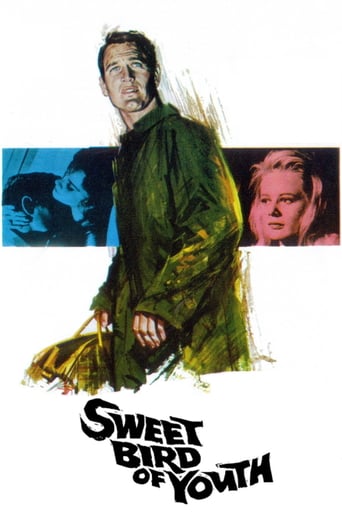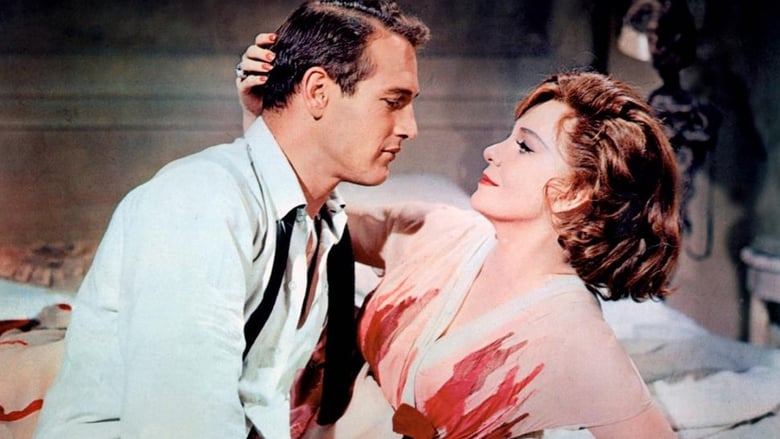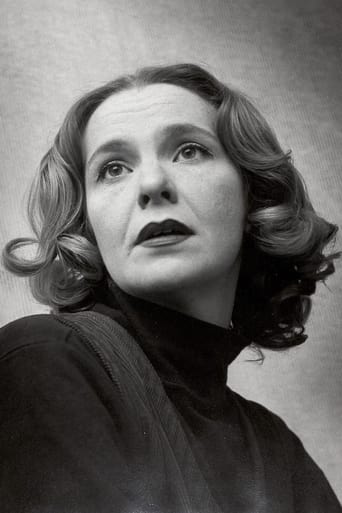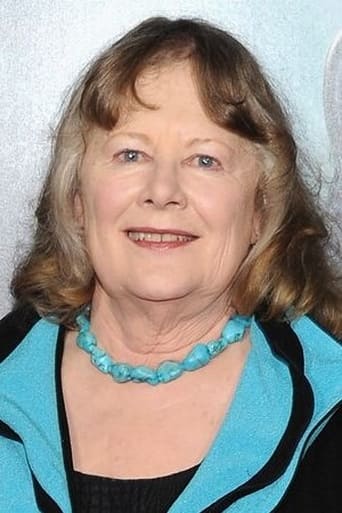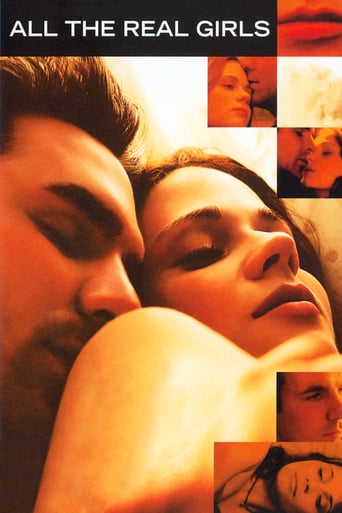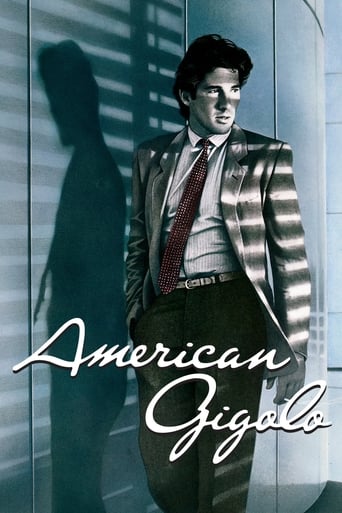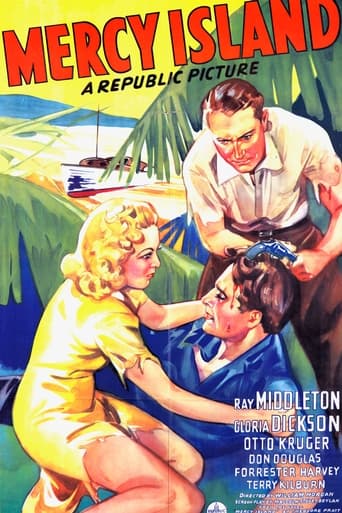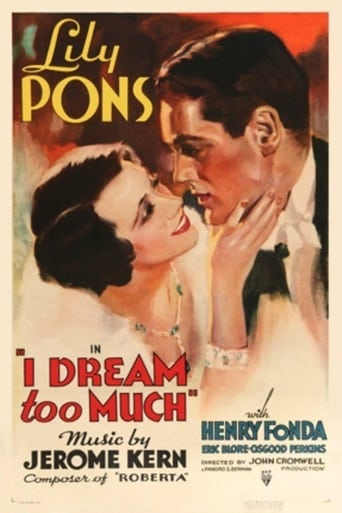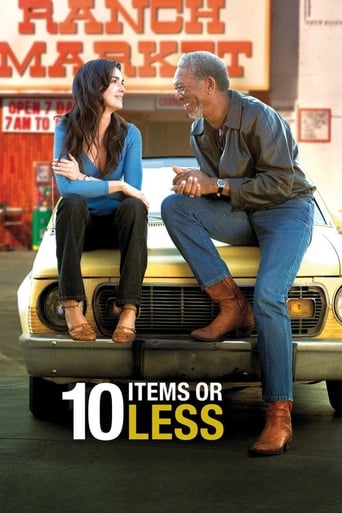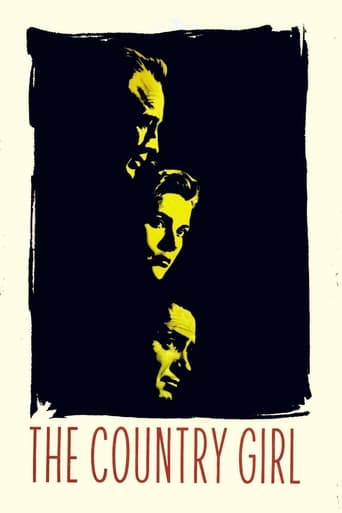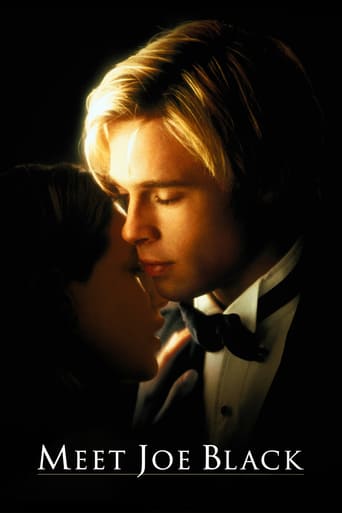Sweet Bird of Youth (1962)
Gigolo and drifter Chance Wayne returns to his home town as the companion of a faded movie star, Alexandra Del Lago, whom he hopes to use to help him break into the movies. Chance runs into trouble when he finds his ex-girlfriend, the daughter of the local politician Tom "Boss" Finley, who more or less forced him to leave his daughter and the town many years ago.
Watch Trailer
Cast


Similar titles
Reviews
the audience applauded
A Major Disappointment
It's entirely possible that sending the audience out feeling lousy was intentional
As somebody who had not heard any of this before, it became a curious phenomenon to sit and watch a film and slowly have the realities begin to click into place.
Wannabe actor Chance Wayne (Paul Newman) returns to his hometown St. Cloud with drunken former film star Alexandra Del Lago (Geraldine Page). Dr. George Scudder tells him his mother died recently and that he's marrying his ex-girlfriend Heavenly (Shirley Knight). Corrupt political boss "Boss" Finley (Ed Begley), father of Heavenly, forced him out of town years earlier. Tom Finley Jr. (Rip Torn) is the tough violent muscle.It's based on a Tennessee Williams play and has that sweaty old south feel. The dialog crackles. There are some great lines. The language is tough. There is some interesting stuff with Newman and Page. However early scenes struggle with their relationship. It does get more and more interesting as it goes on. However there is a good chunk in the middle that needs to be cut back. The power is elevated every time Ed Begley and Rip Torn push their way around. Rip is electric threatening Del Lago. Geraldine Page is acting very close to the edge but she's a great diva. This is a fine southern melodrama.
"Sweet Bird of Youth" flying away deserting our lives ... leaving us with the painful scars of lost memories vanishing in the air ... erasing our last hopes, and painting our future with a mark that gets more and more indelible ... as time goes by Richard Brooks' film, adapted from a successful Tennessee Williams' play echoes one of our deepest fears : losing it losing what? Simply that little something you can't really put your finger on during the biggest part of your life, and can only perceive it while it has definitely deserted it and became a vulgar souvenir, in a word : youth. Youth like an invisible crown on young people's heads and that only older people can see youth, like a ticket for success It's ironic that the title resonates as another famous one, "Sweet Smell of Success", both bears the same resonance, the same power in their symbolism, as if one couldn't go without the other indeed, this bird of youth has a sweet smell, and one thing is certain, we can smell its absence all through the film. The movie is a eulogy to the youth that physically left the glorious and decadent Alexandra Del Lago, Geraldine Page, or that killed the inner idealism of Chance Wayne, Paul Newman two characters portrayed with such a natural authenticity that I wonder if those parts weren't self-reflexive ... don't get me wrong, they were both great, but we never know when reality outshines the fiction Geraldine Page had the magnetism of a has-been diva like Norma Desmond with the realistic touch of fragility from Vivien Leigh's Blanche Dubois or wait a minute, this was from 1962, right? In fact, she had Bette Davis's constantly bitter nostalgic attitude toward the past glory in "Baby Jane Hudson", with the delicateness of Lee Remick from "Days of Wine and Roses" this was a great year for female alcoholic roles, and I'm still torn about which performance would have deserved the Oscar, but let's not spoil the review by these random cinematic considerations The film is about the haunting feeling of youth's volatility and therefore its inner preciousness it's about a time we spend building dreams, told from the view of people aware of that. Indeed, there's a stressing and disturbing feeling of emergency as if all the characters in this film were trying to fulfill their dreams by any means. The worst or let's say, the most tormented of all is of course, Paul Newman, at the pinnacle of his sex-appeal, as a man who tries to take advantage from the fading reputation of her "hostage", Alexandra Del Lago to blackmail her so she can obtain him a screening with a famous director. Newman as Chance Wayne, if that is his real name, is the wanna-be star, getting off his waiter condition to conquer the governor's daughter, Heavenly, to prove his value, influenced or corrupted by the very ideas of the governor, the Big Finley, played by Ed Begley, believable as the reminiscent of the bigot-minded juror #10, with his sneaky son, a young unrecognizable Rip Torn.In fact, the whole subplot is quite secondary when you consider the real heart of the film, where it's all about the indecent dichotomy between youth and success. It's in fact highlighting the personal fear of Tennessee Williams himself, who after the successes of "A Streetcar Named Desire" and "Cat on a Hot Tin Roof" doubted on his own ability to keep up that level of greatness. A legitimate fear that inspired one thrilling journey into the souls of insecure people, one star who thinks herself as an old relic, and a young gigolo who'd sell his soul just to become someone, forgetting that if you're eager to sell your soul, it still proves that you have one. Chance is a good guy but spoils every of his actions by believing he should be better than what he is, and his self-loathing obsession will be his doom.But the film is less an invitation to accept our own condition than to contemplate the devastating effect of confidence, whether it's lacking or overworking. And in the case of Chance, the man who carries this name with a particular irony, you realize how unlucky he was, as he wasn't able to domesticate his own fear of the future. This encouraged him to leave his girl, to achieve his dreams, but life gives you one chance, Chance, never more the second miss was fatal as this lead to a miscarriage for his love, and the cruel reputation of a degenerate undesirable human being in his hometown. The whole dilemma will end up to be whether to follow Alexandra or Heavenly, heart or ambition, both the epitomes of youth that can not be separated, and it's not like he didn't try.The conclusion would disappoint the purists as they would expect a darker epilogue for a movie that covers so many dark and taboo undertones, especially when they know about the content of the original play, but I agree that it would have been too dark regarding the general mood of the film. The ending didn't need to be that happy but the symbolism is still powerful as it allowed Chance to be redeemed. It's Hollywood ending, but the movie efficiently made the point that success or happiness can also be a matter of good or bad luck, and through Chance Wayne, Tennessee Williams gives us a self-approach of what he could've been if he wasn't successful or as a matter of fact, what Newman could've been Thanks God, this is only a movie
Tennessee Williams's play is adapted for film by Director Richard Brooks. A wonderful cast brings this dramatic Southern soap opera to a sublime level the lead role of Chance Wayne given a sizzling performance by Paul Newman, a conniving, charming gigolo who keeps trying - and failing - to succeed at his chosen profession.Chance returns to his hometown towing a has been drug addicted alcoholic movie star, Alexandra Del Lago (Geraldine Page). Chance comes with the purpose of taking his old love, Heavenly (Shirley Knight) away from her obsessed father, 'Boss' Finley (Ed Begley) so the three of them can hit Hollywood together and Alexandra will help him get his first big break in the movies.Chance's homecoming goes off like nothing he has planned, he left a lot of damage when he took off before. Heavenly's dad, who, along with Finley, Jr. (Rip Torn), has a burning hatred for Chance along with a plot for revenge.The film does not evolve much from the stage play and appears stagey throughout.Geraldine Page is the only one who transferred from the original play to the film and her performances is completely overwrought but she manages to carry it off and steals every scene she is in. She puts one in mind of Gloria Swanson in Sunset Boulevard. The part of Alexandra is made for her.There is a beautiful score and Paul Newman is stunning in the role.The only complaint I would have (and thus a lower rating of 7 out of 10) would be the significant change both to the story of what happened to Heavenly after Chance disappeared the first time and to the ending of the film, due to censorship rules. Far far more heartbreaking and tragic than depicted here.And it is such a shame we will never be able to see the alternative ending with this incredible cast. In my opinion it would have put the film into the all time great list.7 out of 10. A must-see.
There are numerous qualities that make SWEET BIRD OF YOUTH a stellar film, starting with the tremendous source material. Williams' tale of fading film actress and princess-by-marriage Alexandra Del Largo escaping Hollywood after a failed comeback attempt and being taken advantage of by aspiring actor/gigolo Chance Wayne is full of ripe drama, all of which is fully exploited by the 1962 film. Williams' typical subplots of southern hypocrisy are also well incorporated into central story by director/screenwriter Richard Brooks (who also helmed 1958's sensational CAT ON A HOT TIN ROOF), and actually heighten the tension of the piece. Even with the censorship of early-sixties cinema (including an unnecessarily re-written ending), Brook's SWEET BIRD OF YOUTH still packs a mean punch.Also crucial to the film's success is casting. No matter what film you're watching, you can always depend on Paul Newman to deliver the goods (which is precisely why he remained a top box office drawl up through the mid-eighties), and he gives one of his absolute best performances SWEET BIRD. Newman had originated the role of Chance in the original stage production, and his immortal screen performance of the role has clearly benefited from the hundreds times that he had previously played the role on stage. Arrogant, masculine, and painfully gorgeous, Newman nearly incinerates the colloid! Also returning from the original stage play is Geraldine Page as Alexandra, the ultimate boozing, wash-up actress. Page is nothing short of sensational a true thinking, feeling, conflicted woman who is desperate to run away from her problems, but completely uncertain of her next move. Alexandra is vain, insecure, and even comedic at times, and Page finds the perfect balance in her portrayal, as she understands that the very qualities that make Alexandra so strong is also what causes her to be weak. Page won a well-deserved Golden Globe for Best Actress in a Drama, but lost the Oscar to Anne Bancroft for her tour de force performance in THE MIRACLE WORKER - seeing that both performances are so phenomenal, I would venture to say that the votes for both awards were probably mighty close.The rest of the cast is no less impressive. Ed Begley won a Supporting Actor Oscar for his role as 'Boss' Finely, and it is refreshing to see the actor let loose in a vile performance without any obvious apprehension. Rip Torn and Mildred Dunnock are great in supporting bits, and Oscar-nominated Shirley Knight is hauntingly lovely as the appropriately named "Heavenly." Director Brooks also makes excellent use of the widescreen frame, composing many exceptional shots that are all but destroyed when the film is altered from its original Panavision format.Certainly some viewers will carp about the re-written ending (the studio demanded that things end "happily") as well as the removal of such hot-button topics as abortion and castration to appease the censors, yet none of these omissions dramatically affect the film. Even though he caved in to the studio in terms of the finale, director Brooks must be given credit for focusing on the characters and dialogue and avoiding the temptation to "dress" the play up for movie audiences. The film is firmly planted in its central relationships, and this is what carries the day. No matter how censorious the Production Code may have been, no one could mask the white-hot dynamic between Newman and Page.

